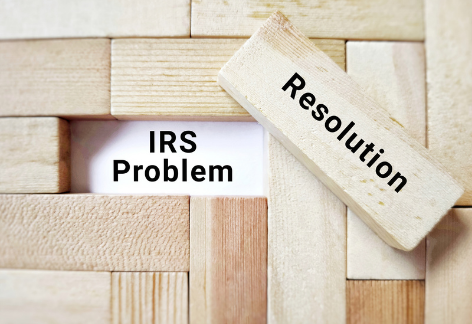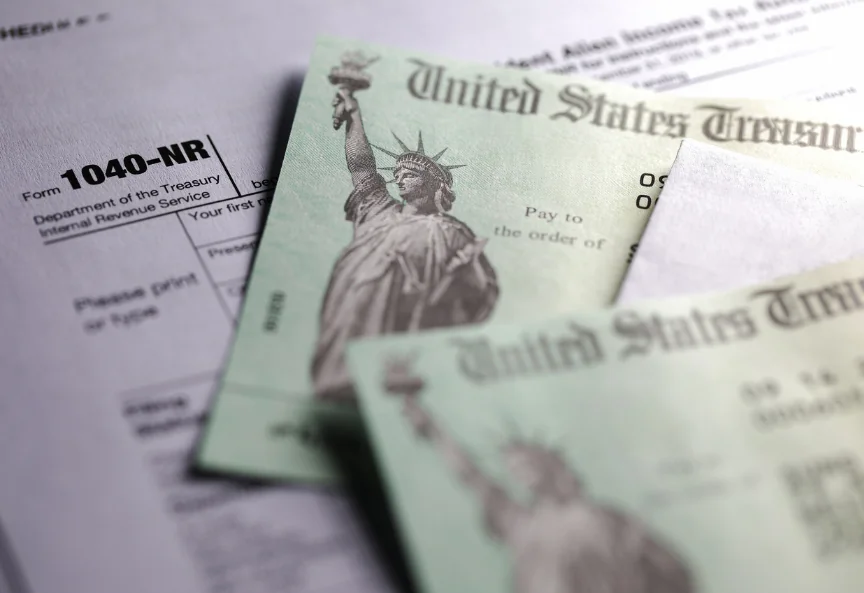A letter from the IRS can mean anything, from a harmless notice of a minor automated change in your return to something more significant, such as a reminder of an overdue balance. Dealing with the IRS when you receive any correspondence from them is a priority, as the agency has more than enough tools to gain a taxpayer’s attention.
But that doesn’t mean the IRS is without mercy – especially amidst a financial crisis. Following the Great Recession, the IRS began an initiative to try and become more lenient towards taxpayers under challenging situations. This led to the launch of the IRS Fresh Start initiative in 2008, designed to help businesses and individuals struggling with back taxes.
What Is the IRS Fresh Start Initiative?
The IRS launched the IRS Fresh Start program in 2008 to help taxpayers pay off their back taxes and reduce the number of ongoing federal tax liens. The IRS Fresh Start initiative entails a series of different policies aimed at providing relief for taxpayers struggling to pay off their debt.
Most of these policies involve tax debt forgiveness or repayment programs and, more significantly, tax lien relief. For example, after introducing the Fresh Start initiative, taxpayers trying to refinance their homes or sell their property could seek tax lien relief not to be financially overwhelmed by an obligation to the government.
A year later, in 2009, the IRS added greater flexibility for taxpayers struggling with collection problems. In 2011, the IRS made it easier for small businesses to seek installment payment programs to pay off their debt by expanding the threshold for these payment plans.
Following further economic troubles in 2012, the IRS further expanded the thresholds on installment agreements for individuals (from up to $25,000 in back taxes to $50,000), while increasing the maximum length for streamlined installment agreements to 72 months (an additional year from the previous limit) and providing unemployed or self-employed individuals struggling with a recent income reduction a one-time six-month grace period on failure-to-pay penalties for 2011.
The same year, IRS also made it easier to make an offer in compromise through the Fresh Start initiative by reducing the number of years taken into account when calculating an OIC (down to two from four or five) while expanding the definition of allowable living expense allowance, and revising calculations for future income to account for rising student loan problems and late state or local taxes.
The Fresh Start initiative encapsulates any changes the IRS makes, either permanently or for a set term, to help taxpayers deal with their tax debt, avoid financial destitution, and get back on the IRS’s good side.
Is the IRS Fresh Start Initiative Available to You?
While it is called the IRS Fresh Start initiative or the IRS Fresh Start program, this is primarily an internal term. To the average taxpayer, these changes went into effect starting in 2008 and continue to be in effect.
Any attempt to seek penalty abatement, reduce your debt through installment agreements, negotiate a release on tax liens, or make an offer in compromise has been simplified and expanded upon. Let’s explore what that means if you plan to ask the IRS for help in the event of significant tax debt.
Offers in Compromise
The taxpayer creates offers in compromise and sends them to the IRS for deliberation. Your debt will continue to accrue during this period, meaning it’s essential to get your offer right the first time. Before the IRS Fresh Start initiative, an offer in compromise required as much as four years’ worth of future income information, even if an offer was structured to cover the debt within four to five months of repayment.
Furthermore, the requirements for eligibility were stringent, limiting offers in compromise to those with truly no other recourse. Following the IRS Fresh Start initiative, both the eligibility requirements and the necessitated financial information have been toned down while limiting most offers in compromise to 24 months rather than longer. However, an offer in compromise remains limited to taxpayers who do not have the financial means to pay their debt in full and have the information to back it up.
Installment Agreements
Installment agreements are another common way taxpayers can seek a compromise with the IRS regarding debt repayment. While the IRS doesn’t expect you to cover the entire cost of your back taxes in a single payment, you do need to make a show of commitment to receive some goodwill from them.
In return for requesting a payment plan with automated monthly installments, for example, you may see a release on your tax liens, as well as a reduction on your monthly interest rates. You may also seek penalty abatement through a tax professional if it is your first offense.
Installment agreements are one of the best ways to keep the IRS from escalating toward drastic collection actions without paying off your debt altogether. You can commit to regularly scheduled, realistic payments and still minimize the hassle the IRS might send your way, despite an outstanding balance.
And since the IRS Fresh Start initiative, the thresholds on tax debt for initiating an installment plan have been bumped up, meaning more taxpayers can take advantage of the benefits of setting up a payment plan.
What If I Can’t Pay?
Suppose neither short-term nor long-term payment plans are an option, and an offer in compromise isn’t feasible due to severe financial hardship. In that case, there is always the option to qualify as currently not collectible. This special status keeps the IRS from seeking collection actions against your account until your financial status improves.
The downside is that your debt will continue to accrue interest, but you can deal with this when the time comes to set up a payment plan or argue for an offer in compromise. This is the actual last resort for taxpayers who genuinely cannot shoulder monthly payments due to a lack of income.
Working With Tax Professionals
The IRS is not an unreasonable organization, and it must resolve taxpayer issues amicably. Working with a tax professional can help you navigate the framework of IRS tax debt resolution and even settle your debt for a reduced amount.











